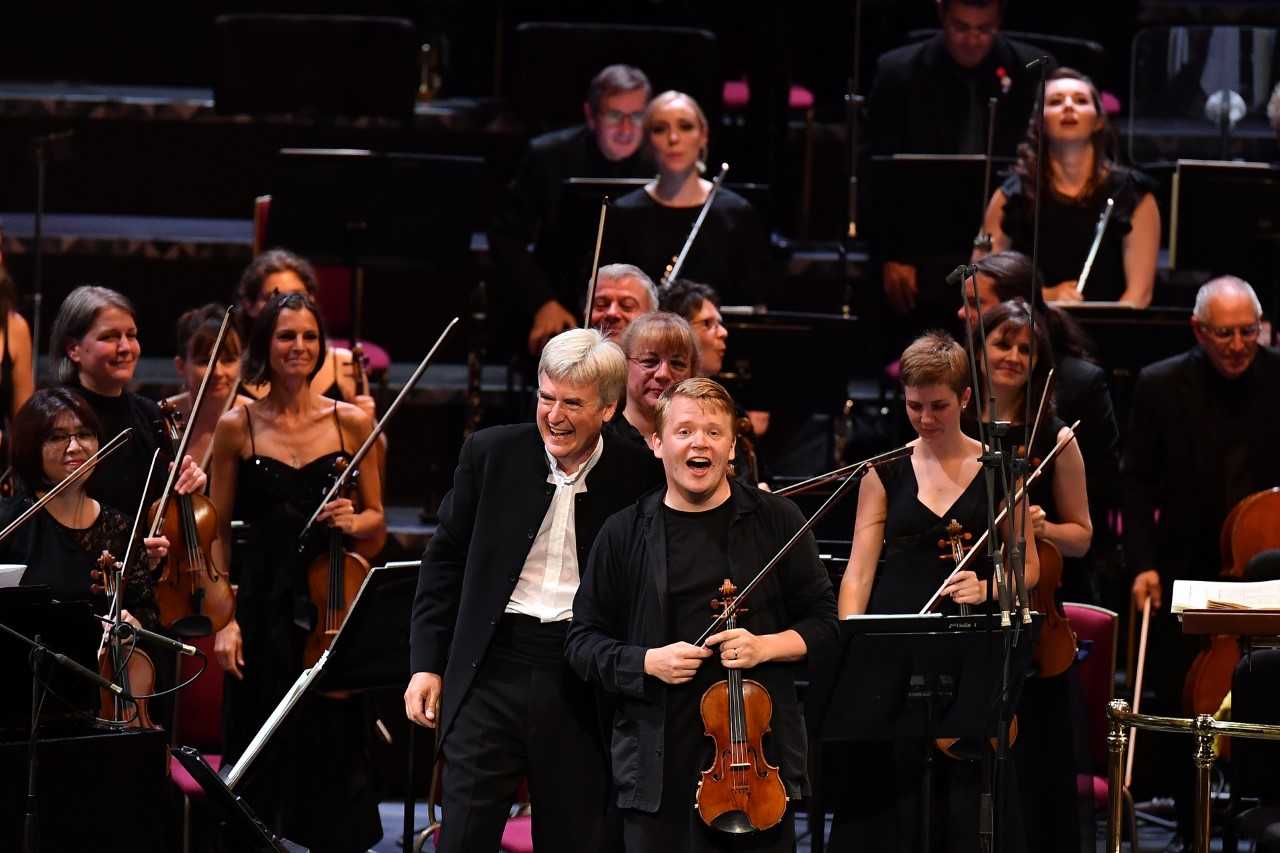BBC Proms 19 and 20 review: Exhilarating performances by the Scottish Symphony Orchestra
The sonic brutality – not wild but cruelly ordered, controlled – of ‘Gowdie’ hits harder than ever under the careful direction of Thomas Dausgaard

Prom 19: BBC Scottish Symphony Orchestra, Alexander Melnikov, Thomas Dausgaard
★★★★☆
The 1990 Proms premiere of The Confession of Isobel Gowdie was one of those unprecedented, unpredictable moments. The fierce, agonising beauty of a little-known young composer’s orchestral work captured an audience resistant to contemporary classical music, establishing James MacMillan’s reputation overnight. Nearly 30 year on, what other piece could better mark the composer’s 60th birthday?
Decades have blunted none of Gowdie’s rage. The sonic brutality – not wild but cruelly ordered, controlled – hits harder than ever under the careful direction of Thomas Dausgaard, painting with documentary clarity the torture and slow death suffered by a 17th-century woman accused of witchcraft. The ravishing, consolatory beauty of the outer, framing sections is no less disquieting. The cushioned blend of the BBC Scottish Symphony Orchestra’s strings may promise redemption, but also invites us to mistrust their easy answers, to celebrate the ambiguity of the work’s defiant final gesture.
MacMillan’s musical rage strikes all the more keenly in context, following Alexander Melnikov’s gauzy account of the Schumann Piano Concerto. His is a salon performance aimed at the BBC’s radio mics, not the Royal Albert Hall audience – all lacy embellishment and elegant gesture. A little too knowing, too worked, it transforms the substantial concerto into a self-conscious divertissement between Gowdie and Strauss’s Also sprach Zarathustra – a mighty opener, given plenty of heft here by the BBC SSO.
Prom 20: BBC Scottish Symphony Orchestra, Pekka Kuusisto, Thomas Dausgaard
★★★★★
It’s all change for the orchestra’s second performance of the week, swapping polished classical clarity and finite forms for first thoughts, rough drafts and the pitted, gritty textures of folk music.
Maverick Finnish violinist Pekka Kuusisto was the driving force behind a programme designed to tease out the threads between Finnish folk music and the concert works of Jean Sibelius. Specially composed sequences of music blending performance by a small group of folk musicians with those by Kuusisto and the orchestra preface both the composer’s Violin Concerto and his Fifth Symphony (heard here for the first time in the UK in its original 1915 draft version). Symphonic themes meet traditional melodies – aural genealogies whose family resemblance are suddenly clear.
And then there’s the concerto itself. Kuusisto is the fusion of the two traditions he straddles, bringing all folk music’s loose-limbed, off-duty ease and classical music’s technique together in performances that have the energy of improvisation about them. This is a concerto with one foot in the fields and one in the concert hall – an exhilarating, intimate account with just a bit of mud on its highly polished boots.
Join our commenting forum
Join thought-provoking conversations, follow other Independent readers and see their replies
Comments
Bookmark popover
Removed from bookmarks